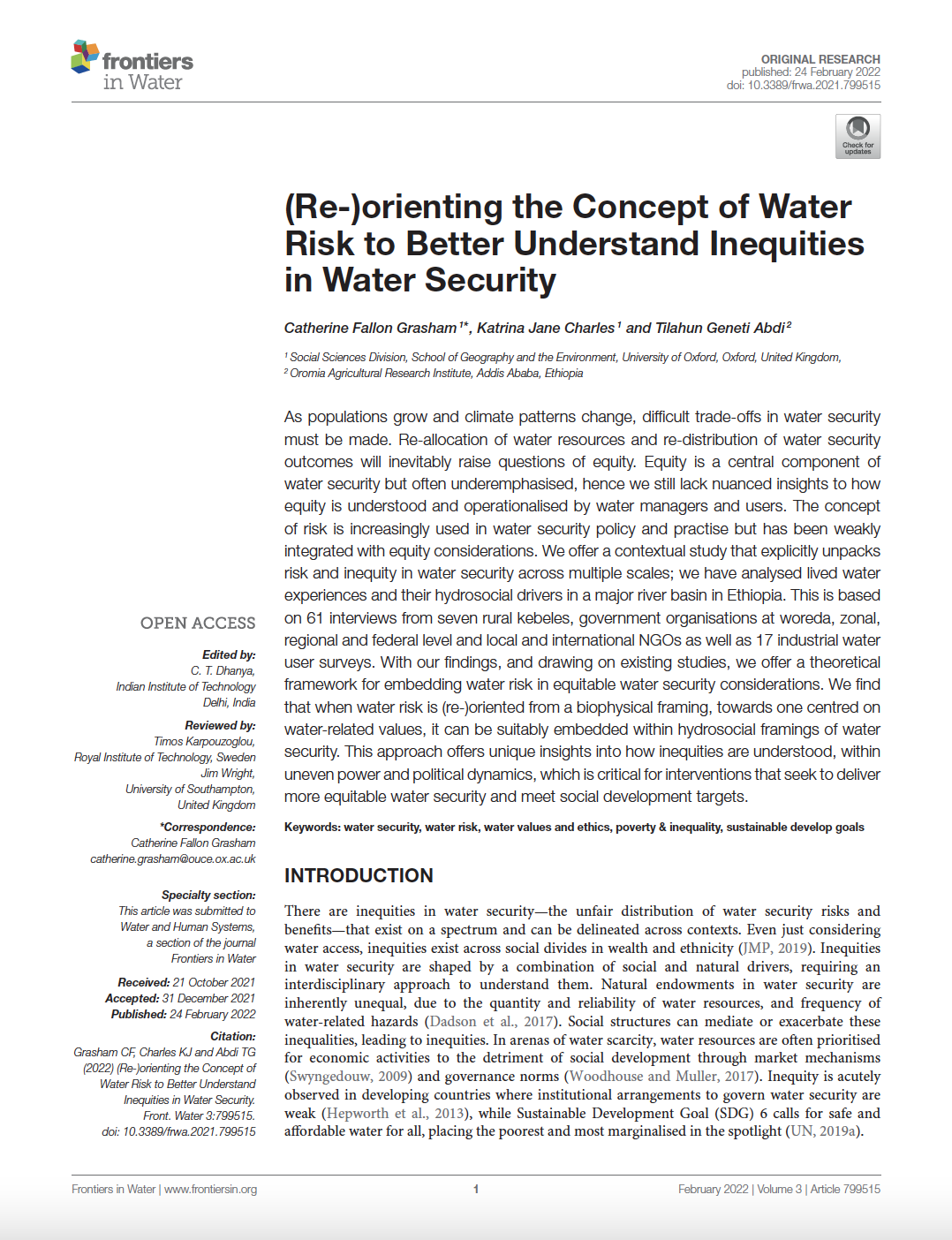Authors: Catherine Grasham, Katrina J Charles, Tilahun Geneti
As populations grow and climate patterns change, difficult trade-offs in water security must be made. Re-allocation of water resources and re-distribution of water security outcomes will inevitably raise questions of equity. Equity is a central component of water security but often underemphasised, hence we still lack nuanced insights to how equity is understood and operationalised by water managers and users. The concept of risk is increasingly used in water security policy and practise but has been weakly integrated with equity considerations. We offer a contextual study that explicitly unpacks risk and inequity in water security across multiple scales; we have analysed lived water experiences and their hydrosocial drivers in a major river basin in Ethiopia. This is based on 61 interviews from seven rural kebeles, government organisations at woreda, zonal, regional and federal level and local and international NGOs as well as 17 industrial water user surveys. With our findings, and drawing on existing studies, we offer a theoretical framework for embedding water risk in equitable water security considerations. We find that when water risk is (re-)oriented from a biophysical framing, towards one centred on water-related values, it can be suitably embedded within hydrosocial framings of water security. This approach offers unique insights into how inequities are understood, within uneven power and political dynamics, which is critical for interventions that seek to deliver more equitable water security and meet social development targets.

